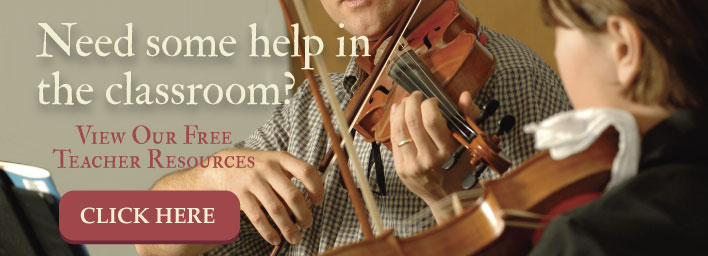Summer 2019 Reading List for Music Educators

Summer is the time to relax and get a much-needed break from the daily bustle of kids, parents, administrators, and programs.
Summertime is also the perfect opportunity to spend some time reading books that will expand and deepen your teaching repertoire and motivation. Here's our summer reading list for music teachers. Even if these specific titles don't interest you (but at least a few should – these are really excellent books!), let them spark you to find titles that will enrich your summer and your students.
Getting on board with music and technology
Technology impacts music in every respect from helping students practice to innovative new music production techniques. For the music teacher, mastering how to record practices, rehearsals, and performances you might want to post online is probably your low-hanging tech fruit with the highest return-on-investment (ROI). Sharing and posting quality recordings is a great way to market your services (for private teachers) or your program (for institutional teachers).
Read Recording Tips for Music Educators: A Practical Guide for Recording School Groups by Ronald E. Kearns. This is no theoretical discussion. It's a detailed step-by-step guide on how to
plan and execute a successful recording written for music teachers who don't have experience in music production. Your digital savvy students will appreciate having recordings to help them practice and to advance their own music careers.
Our second suggestion to improve your music tech chops is Creativities, Technologies, and Media in Music Learning and Teaching: An Oxford Handbook of Music Education, Volume 5 (Oxford Handbooks). Part two of this book, titled "Music Learning and Teaching through Technology," will take you through ways to use technology to help your students. It also includes a bit of a history on technological advancements in music. In truth, the other two parts ("Musical Creativity as Practice" and "Media, Music, and Education") will likely be illuminating as well.
Looking for some creative inspiration
The Perfect Wrong Note: Learning to Trust Your Musical Self, written by William Westney, a concert pianist and past winner of the Geneva International Competition. This book has earned an admirable 4.25 stars on Good Reads, which describes it: "Drawing on experience, psychological insight, and wisdom ancient and modern, Westney shows how to trust yourself and set your own musicality free." Readers and reviewers discuss the book's value not just in enriching your own musicality, but how it will help music teachers do the same for students.
The Rest is Noise by Critics Circle Award winner Alex Ross. This book travels through the 20th century musical with a cultural history of Europe, Russia, and the United States. Through specific works, Ross examines how they were influenced and influenced the time and place where they were created. A great book to give you a richer perspective on the development of modern classical music.
Who Needs Classical Music? Cultural Choice and Musical Value by Julian Johnson, Professor of Music at Royal Holloway, University of London. This is the perfect book to help you prepare your case to get more attention, resources, and classical music commitment from parents, administrators, or community boards who aren't yet sold on its value.
Help students (and yourself) improve your social confidence
Music is, at its core, a social activity meant to bring people together. Yet musicians who prefer to speak through their music may feel uncomfortable speaking on stage or at the many social events that surround performances. Here's some titles to help you and your students improve your confidence speaking before audiences and talking to judges, donors, or other important keyholders in the music world.
Fearless Social Confidence: Strategies to Conquer Insecurity, Eliminate Anxiety by Patrick King explores the attitude differences between the socially confident and those that aren't. He also details the mental barriers that hold us back and shares the "Confidence Transformation Formula" that can help us break through them. Includes worksheets and cheat sheets.
On Confidence: A thought-provoking essay that teaches us that confidence is not innate, but a skill that can be learned, published by The School of Life. This short book (under 100 pages) is the perfect size to fit in a beach bag. Once you accept that confidence is a skill to be learned, say like playing the violin, rather than inborn talent, it's much easier to develop it.
Brave not Perfect: Fear Less, Fail More, and Live Bolder by Reshma Saujani takes a similar approach to social interaction as Westney does in The Perfect Wrong Note. That is, don't fear failure or the specter of failure to hold you back. Saujani is the founder of Girls Who Code, an organization dedicated to teaching girls to have the confidence to code and jump into the tech world. These lessons are invaluable to anyone in any world.
The next two books are variations on the theme of social confidence, focusing on how to network effectively, even at formal social events, while still being your authentic self.
Never Eat Alone: And Other Secrets to Success, One Relationship at a Time, by Keith Ferazzi. This is a comprehensive manual that covers both the mental and practical aspects of networking, as well as branding and digital networking. This is a hardcore networking program.
Eat, Drink and Succeed: Climb Your Way to the Top Using the Networking Power of Social Events, by Laura Schwartz, a woman who joined the White House as a student intern in the Press Office and left it years later as the Director of Events, the person responsible for producing presidential events. This is a detailed, practical guide for how to prepare for events to maximize your networking potential and how to use that preparation in daily networking.
Let's calm things done with some fiction
Bel Canto by Ann Patchett is a contemporary classic. If you've already read it, consider rereading it – it's been a while! It's the story of an international collection of diplomats who are taken hostage at an event, along with the most celebrated soprano of the day. It tells the story of how the relationships among the captives and captors evolve over the extended crisis, in no small part to the opera singer's ability to soothe both groups.
The Queen of the Night by Alexander Chee has won numerous book awards, including selected as The New York Times Book Review Editor's Choice and named "Best Book of the Year" by NPR. This book is a historical novel set in the 19th century with the melodrama of an opera, about an American orphan who achieves fame in Paris as a soprano.
The Kreutzer Sonata by Leo Tolstoy is a novella inspired by Beethoven's Violin Sonata No. 9 and its emotional intensity. The novella is about a jealous husband, Pozdnyshev. The musical reference isn't just in the title. The turning point comes when Pozdnyshev believes an affair was either sparked or revealed by his wife accompanying a young violinist in a performance of Beethoven's sonata.
The sonata inspired the novella, which in turn inspired multiple film adaptations from all over the world, the first in 1915, and most recently, an Israeli film from 2012. The latest American film version is from 2008.
Many, if not all, of these books are available on Kindle or Nook. So whether you're old school or digital, make sure at least one these books makes it on to your summer reading list. Want more titles that inspire? Check here.


